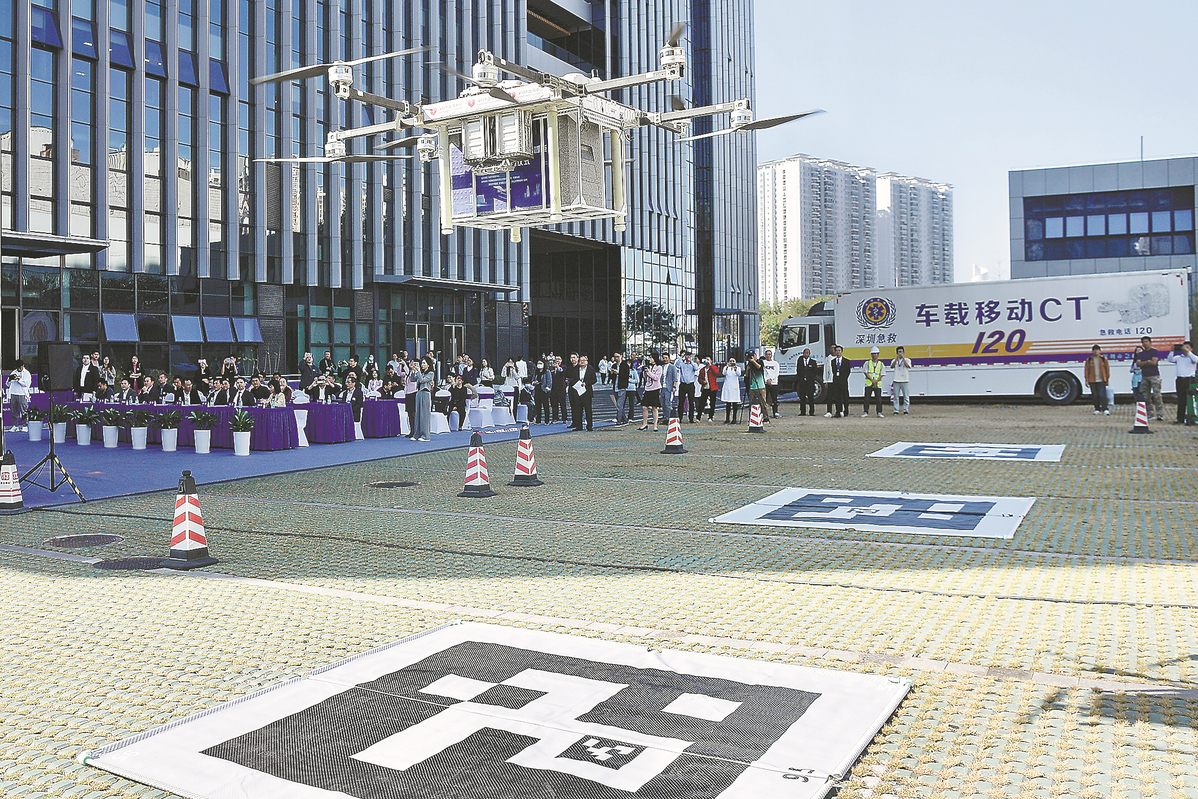Shenzhen launches China's first blood delivery platform powered by drones


Shenzhen, China's tech hub in Guangdong province, unveiled the country's first blood transportation drone platform on Friday to facilitate the delivery of blood samples around the city in minutes.
The move, spearheaded by the Shenzhen Blood Center in collaboration with China Telecom's Shenzhen branch, marks a significant leap forward in ensuring the swift, efficient delivery of lifesaving supplies.
On Friday, against the backdrop of Shenzhen's skyline, a drone carrying samples embarked on a crucial mission from the Shenzhen Blood Center to the Shenzhen Traditional Chinese Medicine Hospital. The maiden flight showcased the integration of 5G technology and artificial intelligence, heralding a new era in blood transportation logistics.
"Three routes have been opened between the city's blood center and the Shenzhen Traditional Chinese Medicine Hospital, the Luohu District People's Hospital and the Eighth Affiliated Hospital of Sun Yat-sen University. Four additional routes are planned, and more medical institutions will be covered in the future," said Ning Li, head of the Shenzhen Blood Center.
"The impact is tangible. For example, the transportation time from the Shenzhen Blood Center to the Luohu District People's Hospital has been reduced from 60 minutes to an astonishing nine minutes," Ning added.
The innovative system addresses long-standing challenges associated with urban ground traffic, particularly in emergency situations requiring timely blood delivery. With the ability to cover distances quickly, the drone platform promises to revolutionize the landscape of medical emergency response.
At the heart of this technological marvel is a"5G Intelligent Air Harbor", a collaboration that seamlessly blends high-speed 5G connectivity and the capabilities of unmanned aerial vehicles.
The platform not only ensures the real-time monitoring of blood transportation, but also enhances the safety of the cold chain, which is crucial for preserving the integrity of blood and its derivatives.
Inside the Shenzhen Blood Center, bags of blood accompanied by monitoring devices were meticulously placed into the blood transportation incubator. The platform's intelligent closed-loop control system oversees the entire transportation process, from dispatch and route management to emergency response coordination and hospital reception.
According to the center, the platform completed 203 trial runs before its launch. During the tests, the platform transported 434 kilograms of blood, as well as red blood cells, plasma and other blood-related products.
"The unveiling of the blood transportation drone platform in Shenzhen holds significance, as it exemplifies the city's leadership in technology and innovation. It not only addresses a critical need in healthcare logistics, but also establishes Shenzhen as a model for leveraging advanced technology to enhance public services," said Wei Jianzhang, vice-president of the Belt and Road Initiative's International Cooperation and Development Research Institute in Shenzhen.
"The impact of this initiative is likely to extend beyond Shenzhen, influencing the adoption of similar solutions across China as the country continues to embrace technological innovation for societal betterment," Wei said.
- Tongji students awarded for developing virtual tactile clothing
- Conservation farming strategies shared at economic event in Jilin
- Elusive heron found in Southwest China mountains for 4 consecutive years
- Xi's speech at literature, art symposium to be published
- Sixth World Buddhist Forum promotes peaceful coexistence
- Tennis stars take a detour into Chinese tradition





































